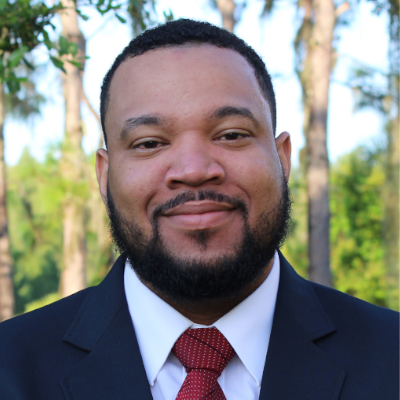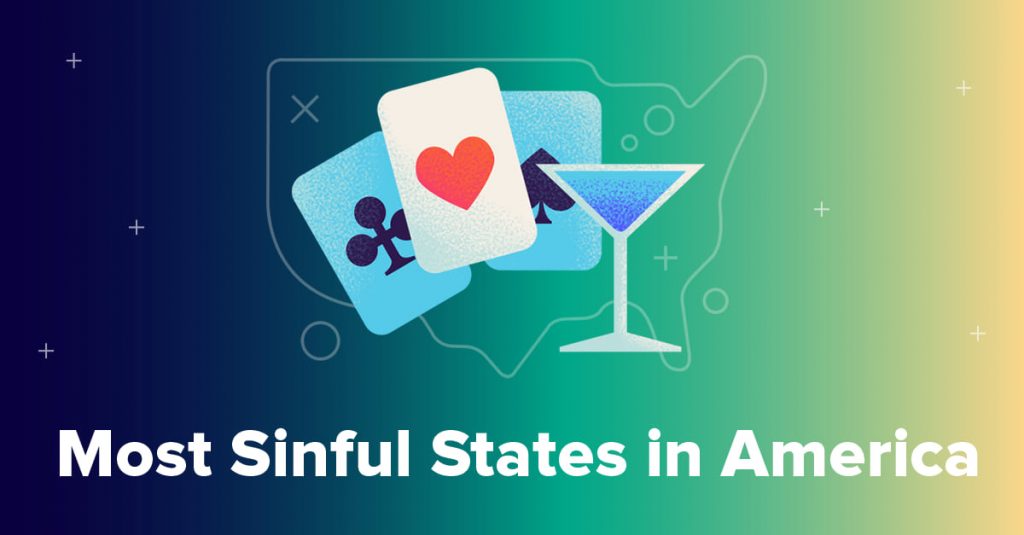2023’s Most Sinful States in America as Reported By WalletHub... - After the Altar Call
Hello World,
I’m a sucker for good study so when this study report showed up in my inbox, I knew I had to share it with you!
Every state has virtues and vices, and vices can be especially destructive when people’s wallets are already stretched thin by high inflation. Harmful behavior on the individual level can result in staggering economic costs, considering that gambling addiction costs the U.S. $5 billion per year and smoking costs dwarf that with over $300 billion per year.
In light of these statistics, the personal-finance website WalletHub recently released its report on 2023’s Most Sinful States, as well as expert commentary. To determine where the U.S. has the most moral growing to do, WalletHub compared the 50 states based on seven sinful behaviors: anger and hatred, jealousy, excesses and vices, greed, lust, vanity and laziness.
Here are some highlights from the report:
Most Sinful States
Least Sinful States
1. Nevada
41. Maine
2. California
42. Nebraska
3. Louisiana
43. Utah
4. Florida
44. South Dakota
5. Pennsylvania
45. Connecticut
6. Texas
46. Iowa
7. Tennessee
47. Vermont
8. Illinois
48. New Hampshire
9. South Carolina
49. Idaho
10. New York
50. Wyoming
My state is ranked at 22. Hmmm….
Key Stats
- Maine has the lowest violent crime rate, 1.09, which is 7.7 times lower than in Alaska, the state with the highest at 8.38.
- Massachusetts has the fewest thefts (per 1,000 residents), 10.97, which is 2.7 times fewer than in Louisiana, the state with the most at 29.65.
- Colorado has the lowest share of obese adults, 25.00 percent, which is 1.6 times lower than in West Virginia, the state with the highest at 40.70 percent.
- Utah has the lowest share of adult smokers, 7.20 percent, which is 3.3 times lower than in West Virginia, the state with the highest at 23.60 percent.
- Alaska has the fewest beauty salons (per square root of population), 0.146874, which is 10.3 times fewer than in New York, the state with the most at 1.512170. (What does a beauty salon have to do with sin? If getting my hair done is wrong, I don’t want to be right!!! LOL )
It’s not enough just to know where certain problems lie. The important next step is figuring out how to fix them and improve each state’s quality of life. For advice on how to reverse some of these bad trends, WalletHub asked the following questions to a panel of experts:
- What makes some states more sinful than others? Law? Culture?
- What are the most efficient measures that federal and state authorities can utilize to curb the obesity epidemic? Is something like the “soda tax” a valid approach?
- What advice do you have for people trying to quit vices (excessive drinking and eating, gambling, unnecessary spending etc.)?
- Given that U.S. hate crimes are on the rise, what can be done to reverse this uptick?
- How can federal authorities combat human trafficking? Is legalizing prostitution a good idea?
Below is one expert’s views:

Micah E. Johnson
Assistant Professor, USF Outstanding Research Achievement Award (2022-2023); Department of Mental Health Law and Policy, College of Community and Behavioral Sciences – University of South Florida
What makes some states more sinful than others? Law? Culture?
Depends on how you define sin. I think the sinfulness of a city is rooted in those macro-level factors, like employment, law, and culture. However, perception and semantics play a huge role in categorizing saints from sinners. I think the most saintly states are the ones that do the absolute best that they can to improve health and wellness in the context of its challenges and resources. It is important to note that within states, there is a huge variation from city to city. Every state has a slice of heaven and a sample of hell.
What are the most efficient measures that federal and state authorities can utilize to curb the obesity epidemic? Is something like the “soda tax” a valid approach?
Let’s target the root causes of obesity. Again, macro-level factors are critical. Culture, stress, isolation, etc. I think access to healthcare, parity between physical and mental health, and mental and physical health integration will be a more effective, genuine, and humane approach than a soda tax. Obesity is a behavioral health issue; it should be treated as such. We like to punish sinners, but she who is without sin should be the only one with a stone in their hands. Otherwise, let’s all practice grace and rely on science to develop solutions. I struggled most of my life with obesity. I recently lost 50 pounds, not because of some internal decision to finally do the right thing. I finally had all the resources and tools that I needed: Low stress, psychological help, medical help, and support from my loved ones. Obesity is a sociological phenomenon. It is not simply about making the right choices.
What advice do you have for people trying to quit vices (excessive drinking and eating, gambling, unnecessary spending, etc.)?
Habits and addictions are some of the most difficult things to experience. Again, addiction, including gambling and gaming addiction, are very serious behavioral health conditions. Recovery requires effective treatment, support, and resources. Hold on to hope, avoid stress, and prioritize recovery.
Given that U.S. hate crimes are on the rise, what can be done to reverse this uptick?
We need to focus more on loving human beings, globally. We need to understand that we are only a small piece of a much larger human family. People are frustrated and practice negative coping mechanisms. Small and less powerful people become the scapegoats and punching bags, children, women, minoritized groups, and other less powerful groups. Politicians use psychological triggers to motivate us to vote. It is incredibly effective, unfortunately. Ethics in politics can be dramatically improved and this will reduce hate crimes. However, there needs to be an investment in diversity and multicultural education.
How can federal authorities combat human trafficking? Is legalizing prostitution a good idea?
I understand that this is a very controversial topic and debate. I am all about empowering women. Women and girls have been historically harmed by these institutions. If women can design and lead a system and institution that protects them and empowers them, then (men) we should get out of the way. I do not have the answers, but I do think the answer will and should come from women.
To view the full report and your state’s rank, please visit: https://wallethub.com/edu/most-sinful-states/46852
All of Professor Johnson’s points are valid, but I believe that knowing Jesus Christ is the most powerful way to eradicate sin. What say you?
Any thoughts?
Comments
comments







